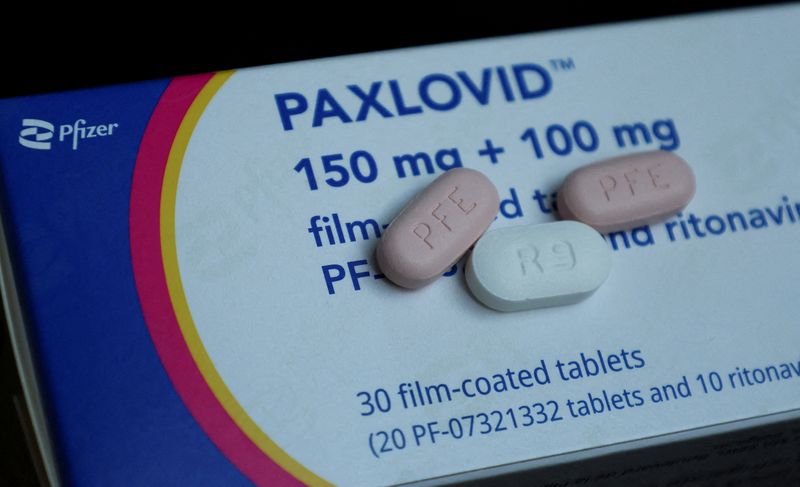By Michael Erman
(Reuters) - A 15-day course of Pfizer (NYSE:PFE)'s COVID-19 antiviral treatment Paxlovid did not relieve symptoms of long COVID, according a study by Stanford University researchers.
Currently, there are no proven treatments specifically for long COVID in which a host of symptoms can last for many months after initial coronavirus infection.
Scientists and patients had hoped that Pfizer's two-drug oral treatment would ease symptoms of long COVID after anecdotal reports of patients who said Paxlovid helped them.
But the 15-week, 155-participant study failed to show that a 15-day course helped more than a placebo in reducing fatigue, brain fog, shortness of breath, body aches, or gastrointestinal or cardiovascular symptoms. Trial participants, on average, had been sick more than 16 months before enrolling in the trial.
"We did not see a measurable difference based on patient reported outcomes in the six composite symptoms together," Stanford Medicine Professor Dr. Upinder Singh said in an interview. "We didn't see a benefit in individual symptoms either."
Dr. Singh said she believes that further study of the treatment for long COVID still has merit, perhaps in longer courses than 15 days or in patients who haven't been sick for as long.
The study did show that Paxlovid, which is currently prescribed as a 5-day course early after infection or symptom onset, is safe when used for 15 days, she added.
Pfizer said in a statement that the results will not impact its other planned collaborative studies of Paxlovid as a potential treatment for long COVID.
Paxlovid is the most commonly prescribed at home treatment for COVID-19 in the U.S. It is approved to treat COVID in adults who are at risk of severe complications from the illness.

In Pfizer's original clinical trial, Paxlovid was shown to reduce hospitalizations and death from COVID by around 90% for unvaccinated people at risk for serious disease. In another trial, Pfizer was not able to show benefit for those considered at standard risk, including vaccinated patients.
Pfizer funded the long COVID trial. Aside from Stanford researchers, scientists from Kaiser Permanente North California and Pfizer also contributed to the study.